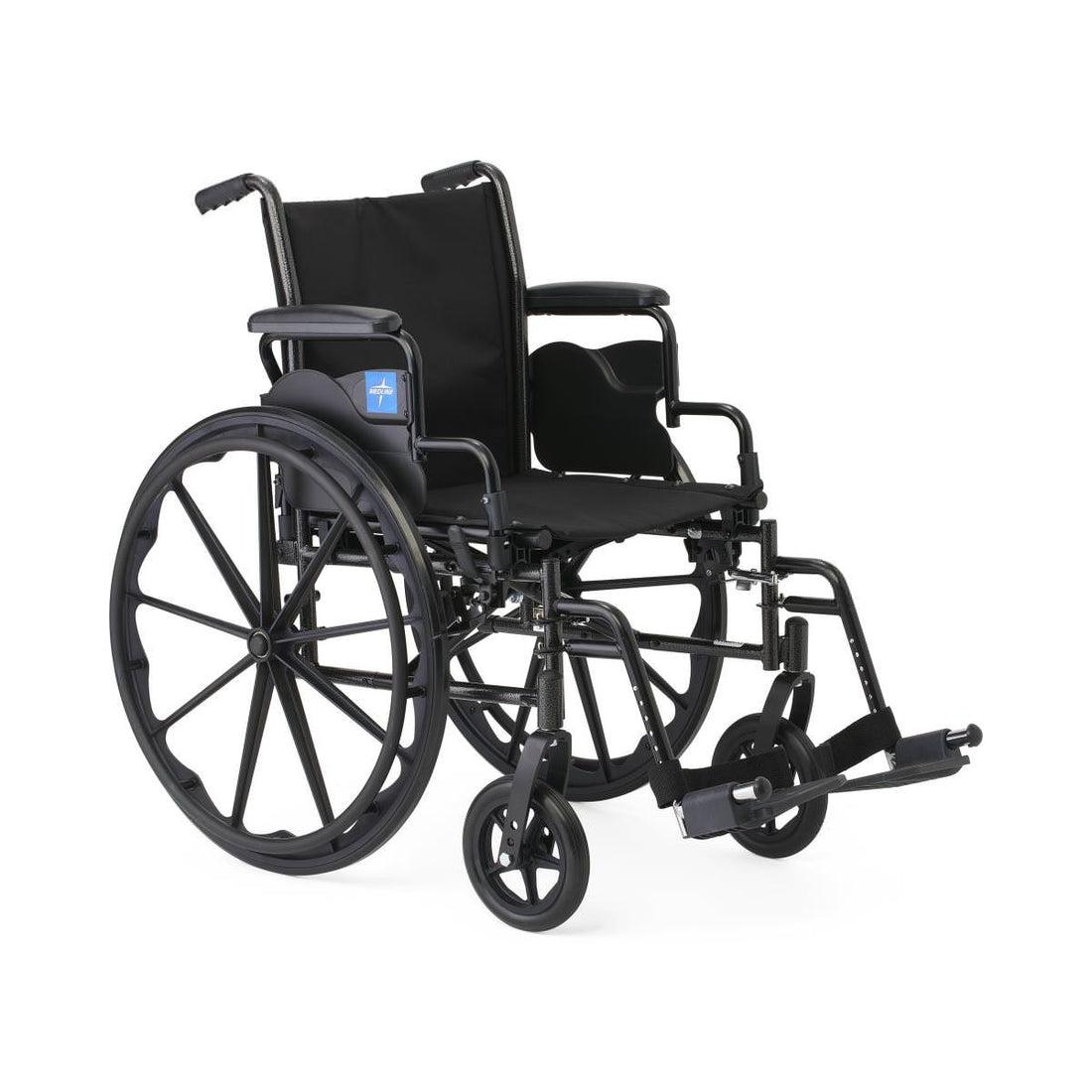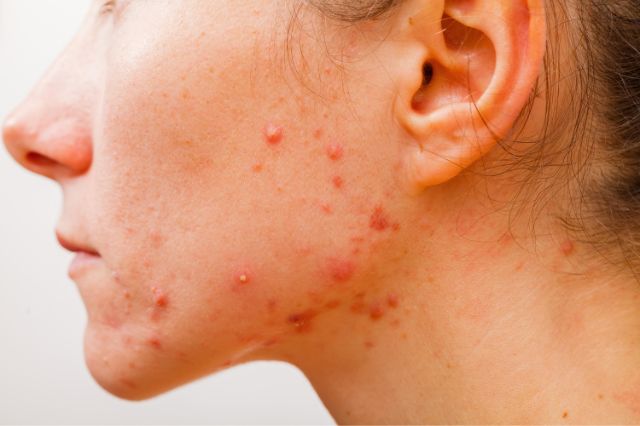Health
The Future of Healthcare: Ultimate Guide to Leadership in Top Medical Careers

Do you want to make a difference in people’s lives and be at the forefront of innovation and growth within healthcare? You are not alone! This blog post explores some of the emerging paths for medical leaders. We’ll look at ways to pursue leadership roles within top medical careers, best practices for developing successful strategies, as well as challenges and opportunities that are helping shape the future of healthcare from both global and local perspectives. Read on to learn how you can join the ranks of those leading change in this exciting field.
Overview of the Healthcare Industry and Current Trends
The healthcare industry is a vast and complex ecosystem that plays a critical role in our lives. It encompasses a range of sub-sectors, including hospitals, clinics, nursing homes, and home health agencies, among many others. Healthcare professionals work tirelessly to deliver high-quality care to their patients, leveraging advanced technologies and cutting-edge treatments to promote better health outcomes. And as with any industry, healthcare is subject to a range of trends that shape its direction and evolution. Some of the most important current trends include a growing emphasis on preventative care, the use of artificial intelligence and machine learning in healthcare decision-making, and the continued expansion of telemedicine services. These trends both reflect and shape the fast-paced nature of the healthcare industry, ensuring that it remains on the cutting edge of innovation and progress.
Necessary Skills for Leadership in the Healthcare Field
The healthcare industry requires leaders with specific skills, and the task can be challenging but very important. To be an effective leader in this field, one must possess exceptional communication skills, critical thinking abilities, and a strong sense of empathy. Excellent communication skills are essential in effectively conveying vital information to staff and patients, while critical thinking abilities allow for proper decision-making. Moreover, a leader in the healthcare field needs a strong sense of empathy, to provide care that is driven by a genuine desire for patients’ well-being. These skills are necessary for healthcare leaders to inspire their teams, provide the best care for patients, and drive progress in the field. Thus, with the right skills, a leader can positively impact patient outcomes, transform healthcare services, and contribute to making lives better.
Types of Medical Careers and Salaries
The medical field offers a plethora of career paths for individuals to pursue. From physicians to nurses, to medical assistants and beyond, the options seem endless. The salaries for these positions can also vary greatly based on factors such as experience, specialization, and location. One career option that has gained popularity in recent years is obtaining a Master of Medical Science online degree, as this degree can open doors to higher-paying jobs and leadership opportunities within the healthcare industry. Overall, there is something for everyone in the medical field, and exploring career options can lead to a fulfilling and prosperous future.


Understanding Patient Rights and Regulatory Compliance
Patient rights are laws that protect individuals from any form of discrimination or abuse while receiving medical care, and they ensure that everyone receives quality treatment regardless of age, gender, race, ethnicity, or any other factor. Regulatory compliance requires healthcare leaders to adhere to professional standards such as the Health Insurance Portability & Accountability Act (HIPAA) and the Joint Commission on Accreditation of Healthcare Organizations (JCAHO), which promote safety and quality within the healthcare industry. Failure to abide by these rules can result in costly fines and legal action for both patients and providers alike. It is therefore crucial for all medical professionals involved in providing care to be well-versed in understanding patient rights and regulatory compliance guidelines.
Preparing for Job Interviews and Landing a Position
Job interviews and landing a position can be thrilling and stressful at the same time, especially in the healthcare sector where leadership abilities are in high demand. Showcasing your leadership abilities during an interview can be the difference between securing a position and not. First, it’s important to research the company or organization you are applying to understand its values and culture. This will help you tailor your responses to align with their mission. Additionally, be sure to practice answering common interview questions and have examples or stories prepared that highlight your leadership skills. Remember, confidence is key! By demonstrating your leadership potential and showing a passion for the healthcare industry, you’ll be on your way to landing the job of your dreams.
Experiences of Current Medical Professionals on Working in the Field
Working in the medical field is undoubtedly one of the most challenging yet fulfilling careers you can pursue. Medical professionals have a special responsibility to care for and improve the lives of their patients. For current medical professionals, the experience of working in the field is unmatched. They face high-stress situations daily and have to make quick decisions that can impact someone’s life in seconds. It’s an emotionally charged profession that requires immense compassion, resilience, and perseverance. However, the satisfaction of helping those in need and improving their health is unparalleled. As medical technology advances, current medical professionals have to keep up with the changes and continually acquire new knowledge and skills. Despite the challenges, they find fulfillment in serving their patients and making a real difference in people’s lives.
The Benefits of Working in the Healthcare Industry
Working in the healthcare industry is an incredibly rewarding and meaningful experience. Not only do medical professionals have the opportunity to make a real difference in people’s lives, but they also get to be part of an ever-evolving and innovative field. Healthcare workers are on the frontline of developing and providing cutting-edge treatments, medical care, and technology. Furthermore, they are exposed to new opportunities for growth and development as they keep up with advancements in the field. Healthcare workers can also take pride in knowing that their work is making a difference; patients’ lives are improved through their efforts every day. Thus, working in this field is a satisfying way to build a career and make an impact on the world.
Working in the healthcare industry is a truly unique and fulfilling experience that allows professionals to make an impact on people’s lives every day. Overall, working in the healthcare industry comes with its own set of challenges but also great rewards if you have what it takes to succeed!
Health
Wheelchairs: Types, Functions, Advantages, and Recommendations for Choosing


Wheelchairs are an essential means of transportation for people with disabilities, helping them maintain mobility, independence, and improve their quality of life. They provide comfort and convenience in everyday life, allowing users to be active and independent.
Let’s explore the different types, functions, and advantages of wheelchairs, and provide recommendations on how to choose the right one.
Types of Wheelchairs
There are several types of wheelchairs, each with its own characteristics and purpose:
1. Mechanical.
Mechanical or manual wheelchairs are propelled by the user or an assistant. They are simple in design, lightweight and affordable.
Advantages:
- Light weight.
- Easy to use and maintain.
- Relatively low cost.
- Do not require power supply.
Disadvantages:
- Require physical effort to move.
- Limited speed and range of movement.
- Not suitable for people with limited hand strength.
2. Electric.
Equipped with a motor and controlled by a joystick or remote control. They are suitable for people with disabilities who cannot move the wheelchair on their own.
Advantages:
- Easy to operate.
- Ability to travel long distances.
- High level of comfort and support.
- Suitable for users with reduced mobility.
Disadvantages:
- High cost.
- The need for regular battery charging.
- Large weight and dimensions.
3. Sports.
Sports wheelchairs are designed for active users who play sports or lead an active lifestyle. They have a lightweight and durable design, with special wheels and accessories to improve maneuverability and speed.
Advantages:
- Lightness and maneuverability.
- Strength and durability.
- Suitable for an active lifestyle.
Disadvantages:
- High cost.
- Not always suitable for everyday use.
4. Children’s.
Children’s wheelchairs are specially designed for young users with disabilities. They take into account children’s physiological characteristics and provide a high level of comfort and safety.
Advantages:
- Adaptation to the needs of children.
- Adjustable components for child growth.
- High level of comfort and safety.
Disadvantages:
- Limited period of use due to the child’s growth.
- High cost of specialized models.
5. Wheelchairs for an active lifestyle.
Designed for users who lead an active lifestyle despite physical limitations, including work, travel, and sports. They combine lightness, maneuverability, and comfort.
Advantages:
- High maneuverability and lightness.
- Suitable for an active lifestyle.
- Convenient for traveling.
Disadvantages:
- May be less comfortable for prolonged use.
- High cost.
You can find a wide range of wheelchairs from world-famous brands: https://medsupplycart.com/
Functions of Wheelchairs
They perform several important functions that help users maintain independence and improve their quality of life:
- Mobility. Their main function is to ensure the mobility of the user, allowing them to move around at home, at work, and on the street.
- Support. They provide the necessary support for people with disabilities, helping them maintain proper posture and avoid injury.
- Comfort. They provide comfort through ergonomic design, adjustable seats and backrests, and additional accessories such as armrests and footrests.
- Independence. Wheelchairs help users maintain their independence, allowing them to perform daily tasks and engage in social activities independently.
Advantages of Wheelchairs
Wheelchairs have several advantages that make them indispensable for people with disabilities:
- Improved quality of life. They help users lead an active lifestyle, participate in social activities, and maintain independence.
- Reducing physical activity. They reduce the physical load on a person with disabilities, allowing them to move around effortlessly.
- Improved safety. Ensure user safety by helping to avoid falls and injuries.
- Comfort and support. Provide comfort and support, helping to maintain proper posture and avoid pain and discomfort.
Recommendations for Choosing a Wheelchair.
- Identification of needs. Before choosing a wheelchair, it is important to identify your needs and requirements. Consider your lifestyle, activity level, physical abilities, and medical needs.
- Consultation with a specialist. Consult your doctor or rehabilitation specialist. They can help you determine which type of wheelchair is best for your needs.
- Read reviews and ratings. Read reviews and ratings of different models. This will help you find a reliable and comfortable wheelchair that meets your needs.
- Test the wheelchair. Be sure to try it out before you buy. Make sure it is comfortable, easy to operate, and meets your needs.
- Warranty and service. Check the warranty terms and availability of service centers in your area. This will ensure timely repairs and maintenance.
Wheelchairs are an important means of transportation for people with disabilities. They help maintain mobility, independence, and improve quality of life. Choosing the right wheelchair depends on the needs and requirements of the user, as well as the conditions in which it will be used. Consultation with a specialist, reading reviews and testing will help you make the right choice and ensure maximum comfort and support.
Beauty
How to Test for Acne


Acne is the most common skin issue in the United States, affecting an estimated 50 million people. Although most prevalent in teenagers and adolescents, adult acne is a problem affecting men and women throughout their adult lives.
So, how do you know if you suffer from acne, and how do you find out what is causing it? Let’s take a closer look.
What is acne?
Acne is a skin condition that predominantly leads to spots and oily skin. It most typically occurs on the face, back, and chest. Acne is often linked to a change in hormone levels during puberty but can start at any age.
Some people only experience mild symptoms of acne that do not require treatment, whereas others struggle with more severe issues.
What are the main symptoms of acne?
Although everyone’s skin is different, some of the most common symptoms of acne are:
- Crusting of skin bumps
- Cysts
- Papules (small, red bumps)
- Pustules (small, red bumps that contain white or yellow pus)
- Redness around skin eruptions
- Scarring of the skin
- Whiteheads
- Blackheads
The symptoms of acne most commonly occur on the face, although they can also manifest themselves on the shoulders, back, arms, chest, and buttocks.
How is acne diagnosed?
If you suspect that you may have acne, you can make an appointment with your doctor, who will be able to give you an official diagnosis. In most cases, they can do this simply by examining the skin without the need for any testing.
Alternatively, you could book an appointment with a dermatologist, although this is unlikely to be covered by your health insurance.
What tests are available for acne?
If you struggle with chronic acne and would like to find out more about what is causing your skin to break out, you might want to consider requesting a blood test for acne.
Although this can be carried out by your doctor, it would be better to work with dermatologists and skin experts who can administer an in-depth test to see what is going on underneath the surface of your skin.
There are lots of different biomarkers that can be checked to see what is causing the acne on your skin, such as:
- Blood glucose
- Kidney function
- Electrolytes
- Inflammation
- Vitamins and minerals
- Liver function
- Thyroid
- Hormones including testosterone, estrogen and progesterone
- Gallbladder function
It is highly unlikely that your doctor will check all these elements of your health when doing a blood test as it is expensive to do. However, this can leave you with even more unanswered questions. However, when you undergo full testing, you can find the root cause of your acne and make any necessary changes to your lifestyle, diet, and skincare routine.
You can order acne health skin care home test kits that are delivered directly to your doorstep, which require you to take a sample and post it back to the lab. Alternatively, if you do not feel comfortable doing this, you can make an appointment with a private clinic.
What triggers acne outbreaks?
There are lots of things that can trigger an acne breakout, including:
- Hormonal changes such as puberty, menstrual periods, pregnancy, birth control pills, and menopause.
- Certain medications, such as steroids and testosterone.
- Birth control devices such as drug-containing IUDs.
- Excessive touching of the skin.
Although many people believe that a poor diet can contribute to spots, there is little evidence to suggest that eating sugary foods such as chocolate and candy causes spots.
What are the best treatments for acne?
Depending on the severity of your symptoms, there are several treatment options available. For mild cases, it can be a good idea to start with a good skincare regime that includes cleansing, moisturizing and gentle exfoliation.
For more stubborn spots and blemishes, over-the-counter treatments that contain salicylic acid or benzoyl peroxide can be effective. However, these can cause redness, drying, or excessive peeling of the skin in some people.
Lastly, for those who have severe symptoms of acne, there are several treatments that your doctor may be willing to prescribe, such as oral and topical antibiotics and prescription formula sulfur, resorcinol or salicylic acid.
Final thoughts
Acne, both in adolescence and adulthood, can have a seriously detrimental effect on your self-esteem. Fortunately, you do not need to suffer in silence as there are tests and treatments available, with options for all ages and skin types.
Health
When to Know Your Sore Throat Needs Urgent Attention


Sore throats are incredibly common, especially in children, and, in most cases, are nothing to be concerned about. However, sometimes they are a sign of something more serious.
If you have a persistent sore throat or your child keeps complaining of having a sore throat and you are starting to worry, it can be a good idea to know when a sore throat requires urgent attention.
What are the most common causes of a sore throat?
Most colds are caused by a virus, such as the common cold or seasonal flu. However, there are other potential causes, including:
- Allergies
- Bacteria
- Dry air
- Exposure to pollutants, excessive dust or chemicals
- Smoking or exposure to second-hand smoke
Could my sore throat be a sign of throat cancer?
In rare cases, a sore throat can be a sign of cancer in the throat, which affects around 1% of the adult population. There are several different types of throat cancer, including nasopharyngeal cancer, glottic cancer, and oropharyngeal cancer.
As mentioned above, it is very unlikely that your sore throat is a symptom of having throat cancer, although it is important to know that it could be. Some of the most common signs and symptoms of throat cancer include:
- A cough
- Changes in your voice, such as hoarseness or an inability to speak properly
- Difficulty swallowing
- Ear pain
- A lump or sore that does not heal
- Weight loss
It is also worth knowing the factors that increase your risk of throat cancer, such as being a smoker or chewing tobacco, excessive alcohol consumption, viral infections such as HPV, and exposure to toxic substances.
Do I have strep throat?
Strep throat is a bacterial infection that makes your throat feel sore and scratchy. This infection only accounts for a small percentage of sore throats, however, if left untreated, it can cause issues including inflammation of the kidneys and rheumatic fever.
Strep throat is most common in children, although it can occur in adults as well. If you suspect that you or your child has strep throat, make an appointment with your doctor as soon as possible.
Some of the most common signs of strep throat include:
- A sore throat
- Chills
- A headache
- Loss of appetite
- Abdominal pain
- Nausea and/or vomiting
It is worth knowing that strep throat does not normally cause a cough, so if you have this symptom, you are more likely to have a viral infection.
Is a sore throat a symptom of COVID?
While a sore throat can be a symptom of COVID, it is not as common as a fever and a dry cough. However, if your sore throat is a result of COVID-19, it might feel:
- Dry
- Painful when you swallow
- Scratchy or itchy
If your sore throat is accompanied by a fever, headache, and a dry cough, you may want to take a test to rule out COVID.
What symptoms indicate that a sore throat requires medical attention?
A viral sore throat should start to show signs of improvement within five days. If you or your child has had a sore throat for longer than this time and are not responding to over-the-counter treatments, it can be a good idea to book an appointment with your doctor.
However, if your sore throat has persisted for a long time, seems too severe or you have other worrying symptoms, it may require urgent medical attention. Concerning symptoms that require immediate investigation include:
- Blood in your saliva or phlegm
- Dehydration
- Difficulty breathing or swallowing
- Excessive drooling, especially in young children
- Joint pain or swelling of the joints
- A high fever (over 101 Fahrenheit)
- Chills and body aches
- A rash or hives on your body
- Earache
- Hoarseness that lasts more than two weeks
- Unexplained weight loss
Final thoughts
When it comes to any persistent or worsening symptoms, including a sore throat, it is always better to be safe than sorry and seek medical advice. If your sore throat is accompanied by any other worrying symptoms as detailed above, you should seek medical attention as quickly as possible.
In most cases, your sore throat will go away on its own with time and rest or you may require antibiotics if you have a bacterial infection.
-



 Captions3 years ago
Captions3 years ago341 Sexy Captions to Fire Up Your Instagram Pictures
-



 Captions3 years ago
Captions3 years ago311 Night Out Captions for Instagram and Your Crazy Night
-



 Captions3 years ago
Captions3 years ago245 Saree Captions for Instagram to Boost Your Selfies in Saree
-



 Captions3 years ago
Captions3 years ago256 Best Ethnic Wear Captions for Instagram on Traditional Dress
-



 Captions3 years ago
Captions3 years ago230 Blurred Picture Captions for Instagram
-



 Captions3 years ago
Captions3 years ago275 Deep Captions for Instagram to Express Your Thoughts
-



 Quotes3 years ago
Quotes3 years ago222 Nail Captions for Instagram to Showcase Your Fresh Manicure
-



 Captions3 years ago
Captions3 years ago211 Laughing Captions for Instagram | Laughter Is the Best Medicine







